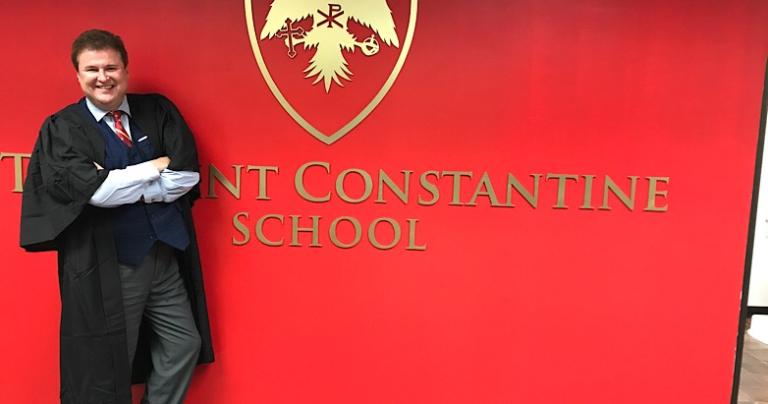
One virtue of classical education is that the lecture, the performance of the sage on the stage, is replaced with discussion as the primary means of teaching. Lectures happen, but only when needed, and so the pressure of finding the “opening joke” (told at every version of the lecture) or the humorous hit to hold the audience is removed. Funny things happen in a discussion, don’t ask how many ways I have heard Thucydides pronounced, but the teacher does not have to produce them.
That’s good, because as a rule, teachers are bad at humor. This is, perhaps, the most enduring feature of teachers. We are not funny. Socrates has irony, but is not a laugh riot. Jesus has a biting wit, but does not tell any jokes per se showing His Divine Wisdom. Teaching is serious business, but that has not prevented generations of us from attempting the joke proper in class.
The lads and lasses out of Eastern in Brooklyn put out a fine literary magazine: The Daisy. The copies I have are all from 1907, but not much has change when it comes to teacher humor: still lame.
I am sure Mr. Paine was a fine teacher, but this is not very funny:
Mr. Paine: What is an anarchist?
Miss Quinn: One who rises up.
Mr. Paine: You do not mean an anarchist, but an areonaut.
This is not lolmao.
It is not even lol.
Mr. Gluck did not help when he suggested putting the battle of Waterloo under chemical analysis and getting H2O-loo. The legendary Dr. Holmes is reported to have had them rolling in 1907 with the following:
There is one romantic occurrence in Caesar. When he came to the Rhine, he proposed to Bridget.
This was such a stretch that the lads at The Daisy put in an explanation: “bridge it.” Some reader from 1907 penciled in “good” over this joke, but this is not comedy gold for any wag nervous about his class on the Rhine.*
Why aren’t teachers funny?
We must avoid wit for three reasons. First, certain types of humor are not compatible with our jobs as guides to all students. We cannot put down. We must upbuild.
Second, a good teacher is in love with her subject area. Teachers cannot be super-cynical, we believe in goodness, truth, and beauty. Let others mock, we must love our disciplines or we will never inspire others to love as they should. You cannot be in love and really joke (well) about the object of your desire. Laugh at Hope or about Hope and I get restive. Maybe you can laugh. Maybe this is fine, but Hope is my love dream a phrase that either produces or prevents scoffing, smirking, or smiling at love.
Finally, the best classroom humor comes from community. Students are not or should not be there to here me, but Wisdom. Wisdom may cry out, but wisdom is also lacking in lol. As all of us struggle to hear her voice, we become clownish at times and that self-depractation or unexpected punny moment is unrepeatable to outsiders, but works at the time.
In 1907 Mr. Illich faced a classroom with Mr. Hunicke, who was small, and Mr Gallin, who was large. The Daisy reports that the diminutive Hunicke answered out of turn when the giant Gallin was called on. Mr. Illick went to the depths of teacher humor when he said: “I didn’t call for a pint, I called for a Gallin.”
Sigh.
QED.
————————————
I have thought about The Daisy here and elsewhere.
*See what I did there? Rhine gold and Wagner! Oh the humanity!











